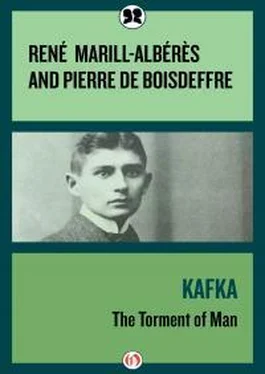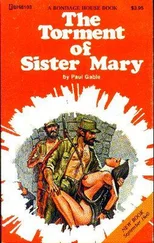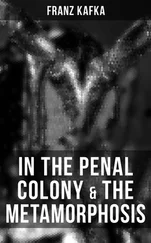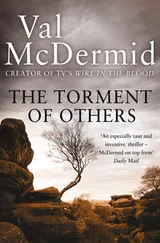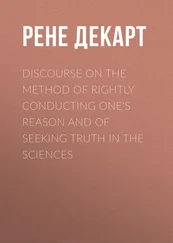In his inmost self Kafka knew that it was impossible for him to change his life. But he clung to the notion of marriage, while he began to see that solitude would provide the answer to his problems. That is why he said ironically that he would marry an old maid with buck teeth once he reached the age of forty! All those around him urged him to marry. Like Mme. Alphonse de Lamartine and Mme. Adrien Proust—like every mother—Frau Kafka thought that marriage and children would reduce her son’s excessive interest in literature “to the dose which cultivated people need.” When he heard such statements Kafka, who still hoped that he would one day fall suddenly in love with a girl, thought that “if he remained a bachelor like his uncle in Madrid, this would not be a catastrophe.”
With every passing month, he became more firmly attached to his loneliness which was an integral part of his life. It was the climate of his spiritual life, the necessary precondition for his sojourn in the strange world which he had already glimpsed. Still, every time he broke with F. B., like Kierkegaard he passed judgment on himself and condemned himself. He had deserted his duty, destroyed the future of the one he loved. “I shall isolate myself from all others, blotting them out of my consciousness. I shall be an enemy to everyone. I shall speak to no one.” Blissful remorse, bitter delight!
The same penchant for self-destruction is discernible in the penultimate love affair of his life—his rash, poignant relationship with Milena Jesenská. Kafka was tormented by fear throughout the affair, as if he had a presentiment that the companion whom he had wrenched from her family for a brief period had already been promised to the Hell of Ravensbruck. The “burning bond” that united them quickly became “a wall, a mountain, or more exactly, a tomb.”
Separated from her husband, Milena belonged to an old Prague family which had been prominent since the battle of White Mountain.
Milena herself reminded one of a great lady of the sixteenth century; she was a character like those sought by Stendhal in the old Italian chronicles—Sanseverina or Mathilde de la Mole—passionate, bold, indifferent, circumspect in her decisions, but unscrupulous in the choice of means when it came to the satisfaction of her passion.… Her love was boundless, her goodness boundless, her resourcefulness boundless.… her demands boundless. 8
Correspondence between Kafka and his Czech translator, begun in 1920, at Merano, had resulted in a passionate love affair. But Kafka warned his friend that it was “impossible for me to live as human being.” He was wedded to a being more to be feared than a legitimate spouse, “to anguish,” his way of participating in existence: “if it ceases, I abandon life as easily as I close my eyes.” Here he is referring not to a crisis that recurred at regular intervals but to a permanent threat, indissolubly linked to his own life: “I shall never cease to inspire fear, especially in myself.” Love itself, beginning with “hideous flesh,” simply intensifies the threat. “No sanatorium will ever cure him,” his friend sadly observes. “He will never recover so long as he suffers from this anguish which involves not only me but everything that lives without shame—for example, the flesh. The flesh is too denuded; it cannot tolerate being seen.” Milena’s love is the knife with which he, a new Baudelaire, probes his wounds. Finally, Kafka comes to love his fear just as Baudelaire his decadence: “She is worthy of love and nothing else in me.” Thus gradually but inexorably, he draws close to the madness that he dreads and invites.
Happiness is denied, love impossible. Besides, how would Kafka bear the burdens of conjugal life and the responsibilities of a father? To a friend he confides: “What I have to do, I can only do alone. Become clear about the ultimate things; the Western Jew is not clear about them and therefore has no right to marry.”
God had not allowed him to escape from paternal authority by introducing the blood of an alien wife into the familial community. Kafka, moreover, was perfectly aware of the choice which had caused him to reject the provisional responsibility of a father to his children (which ceased, he thought, at their majority) in favor of the responsibility of the creator to his creation, which never ceases. By remaining a bachelor, he could concentrate all his strength on this creation.
On a more subtle level Pierre Klossowski undertakes through careful exegesis to draw a parallel between Kierkegaard’s and Kafka’s retreat from marriage and the sacrifice of Abraham. “Kierkegaard,” he writes, “in renouncing his fiancée, sought to reproduce in his own life Abraham’s gesture of faith beyond which the temporal would be returned to him in the eternal, as Isaac was returned to Abraham. But Kafka does not see the possibility of salvation.” 9In fact, Kafka himself recalled Abraham’s situation: Abraham dreams of the sacrifice but cannot believe that he has been called upon to make it. Thus, Kafka concludes, “on the way he is transformed into Don Quixote.” What then, Klossowski asks, is at the root of such irony if not the feeling of having had nothing to sacrifice? “And so Abraham’s gesture remained inimitable.”
Whatever the radical reason for his choice, the die had been cast: Kafka’s sole posterity would be his creation. He had renounced marriage to preserve his creative self. He left his job for the same reasons when he became aware of the exclusive character of his literary vocation.
Everything converged in this direction and left no time for those talents associated with the joys of sex, food and drink, philosophical reflection, and first and foremost, music. I have grown thin in every way. It was necessary because my strength was so meager to begin with that it could serve my literary aim after a fashion only if concentrated exclusively on it. 10
When he fell sick, his malady seemed to him to be a sign sent by God to legitimatize his solitude. He was finally going to be able to “become clear about the ultimate things.” Afflicted by tuberculosis in September of 1917, he felt as if he had had a great weight lifted from him: it was not himself, he reasoned, but God who had made him incapable of living. Without love, without a profession, without friends, alone at last, free at last, placed “under the protection of an affliction,” he was to be able to limit himself to “the unquestionable.” It was not “laziness, ill will, or lack of skill” that had caused him to be a complete failure (“in family life, friendship, marriage, profession”) but “the absence of soil, air, law”: “to create these for myself—that is my task.” He has ceased to be a stupid overgrown child: “I am an end or a beginning.”
Nothing was given to him from the outset. He had to achieve everything: at the price of his happiness, health, life, and, perhaps, the integrity of his spirit.
NOTES
1. Diary .
2. Diary .
3. Conversation with Max Brod.
4. Cf. Pierre Boisdeffre, “Solitude et Communion chez Kierkegaard et chez Kafka,” in Mélanges Georges Jamati .
5. Max Brod, Franz Kafka (English edition), p. 139.
6. Diary .
7. Max Brod, op. cit .
8. Alexandre Vialatte, introduction to Lettres à Milena (Paris: Gallimard, 1956).
9. P. Klossowski, introduction to Journal intime de Kafka (Paris; Grasset, 1945).
10. Diary .
IV
THE BURROW OF THE INDIVIDUAL
AND THE LABYRINTH OF MEN
I have never felt the weight of any responsibility except that of the existence, look, and judgment of other men . 1
Читать дальше
